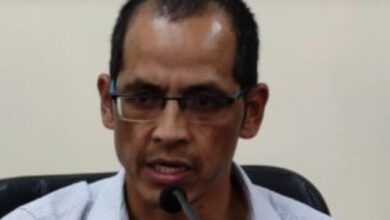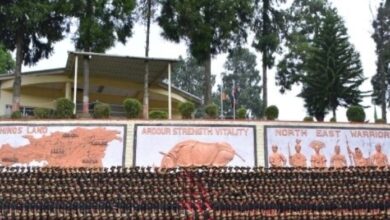Looking for a holistic change
Teachers' protest is only the tip of the iceberg & there should be a united demand for overhauling education system

The parking space beside the Additional Secretariat building in the city turned into a platform for seeking justice for a few days beginning July 15. Over 6,000 teachers under Sarva Shiksha Abhiyan programme of the Centre came together to demand their pending salary, among others. They decided to start an indefinite demonstration after their talks with the government fell through. The state government rejected their demand for the full payment of the pending amount for five months and wanted to settle for two months.
On July 20, Aristotle Rymbai, president of the All Meghalaya SSA Teachers’ Association, choked on his words as he spoke about Education Minister Lahkmen Rymbui’s threat (Also read: SSA teachers threaten mass resignation) to the protesting teachers, who decided to resign en masse. The following day the government assured the protesters that it would release four months’ salary. The protest was called off.
The SSA teachers’ struggle is part of the numerous ailments afflicting the education sector in the state and these mostly remain unaddressed. While teachers in the state have time and again taken to the streets to remind the government of their right to live with dignity, there were barely any protests demanding an overhaul of the system.
Lack of infrastructure, manpower crisis, mismanagement and corruption have affected the quality of education of which the state was once proud of. But no public outcry has taken place over the successive governments’ piecemeal efforts. A Jellingstar Lymba, lecturer in the Department of History at Lady Keane College, said besides non-payment of teachers’ salary, there were many problems in the system and “it is surprising that no one brings up these issues”.
The teachers’ resilience had given hope to many that probably this time, there would be an overhauling of the existing education system and infrastructure. A section of the citizens thought the SSA teachers’ protest would gradually turn into a movement for change. But that did not happen.
“To make a bigger change, every citizen must come forward to put pressure on the government. The time has come to unite,” said Rymbai.
Rymbai also pointed out that the SSA schools have better infrastructure and manpower than state government schools.
“The education sector has been a mess for decades. It did not happen today. So, we have to inspect what is wrong. True, that we cannot bring about change overnight but we have to start somewhere,” UDP leader and former professor Jemino Mawthoh said.
Meghalaya’s ranking in the education index has dropped over the years making it one of the “worst performers”. Chief Minister Conrad Sangma had said the current government has been investing immensely in the sector and it would take some time to notice the change.
If Sangma’s words have to be believed, then the groundwork for change has already begun. But the ground reality is different, says Rymbai. He alleged that “time and again the government has made promises, like improving infrastructure in public schools, but nothing has happened at the ground level”.
The recurring teachers’ protests in the state are a stark example of that ground reality.
“That teachers have to come out in protest gives a bad impression about the government,” Mawthoh said.
The educationists whom Sunday Monitor spoke to suggested several changes which can better the existing system. According to Philomath M Passah, former professor of economics at NEHU, the government should take responsibility to train teachers given the lack of qualitative teaching. He also added that there was a need for treating the priorities of private and government institutions separately and “the issues of private institutions should be taken care of by the respective managing committees”.
Provincialisation of teaching services is another way to streamline the existing system and better the quality in government schools, suggested Mawthoh.
Besides, there is a need for a united voice of teachers, parents, students, NGOs and educationists to bring about a bigger change. Rymbai said the association is planning to start an awareness programme for parents and the public in general “so that they not only understand the value of education but also come forward to seek a better system”.
The state government has recently proposed constituting an education commission to look into the various problems in the sector. Rymbai believes that the commission, the first in the state, “will bring about improvement as it will not only address the grievances of teachers but also the school committees”.
There is a need for a holistic view of the problems in the sector which cannot be solved in parts. It is imminent that constructive steps are taken to better teaching quality, performance in government schools and subsequently improve the state’s ranking in the education index.
~ Team Sunday Monitor
Also read:





